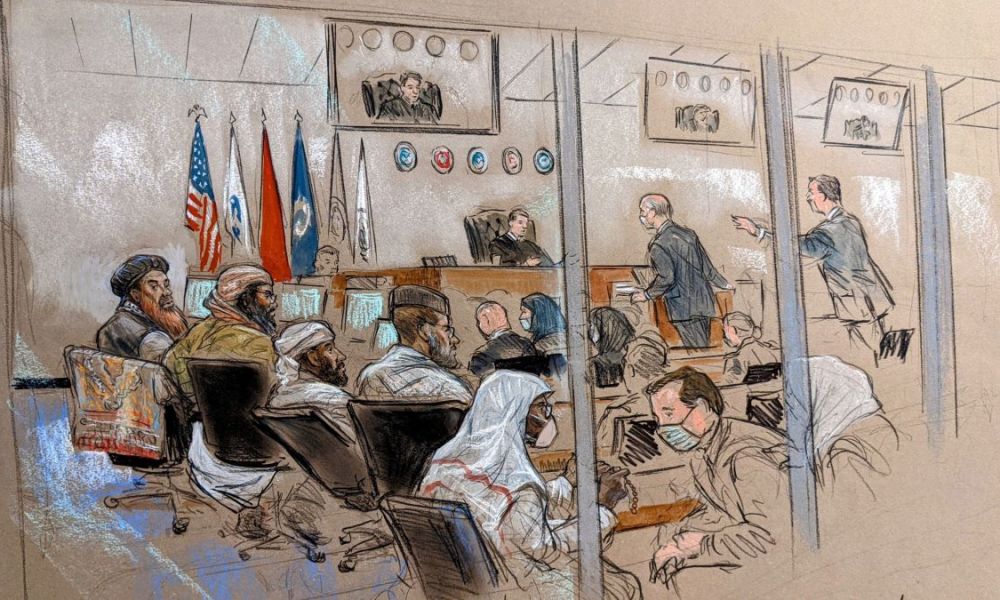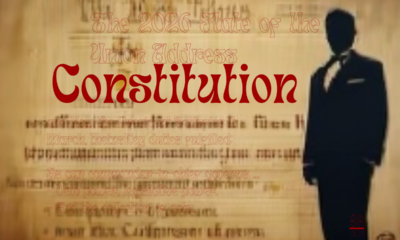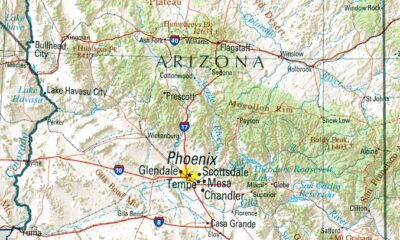Accountability
Justices dismiss Gitmo detainee’s pursuit of evidence on post-9/11 torture

On Thursday, The Supreme Court dismissed a Guantánamo Bay detainee’s request for information about his alleged torture at the hands of CIA contractors in Poland following the September 11 attacks.
In this case, the justices sided with the U.S. government, agreeing to block subpoenas sought by detainee Abu Zubaydah that would have given insight into his treatment in a CIA “black site.” Zubaydah had sought to question two CIA contractors, James Mitchell and John Jesse who allegedly waterboarded Zubaydah dozens of times.
The Supreme Court ruled that Zubaydah’s request was barred by the U.S. government’s assertion of the state secrets privilege, a legal doctrine that allows the government to protect certain information to protect national security.
“Given Mitchell and Jessen’s central role in the relevant events, we believe that their confirmation (or denial) of the information Zubaydah seeks would be tantamount to a disclosure from the CIA itself,” Justice Stephen Breyer wrote for the court’s majority.
Both Justice Neil Gorsuch, an Justice Sonia Sotomayor disagreed with this and suggested the majority’s insistence that any secrecy remained around the existence of the CIA’s black site in Poland was a mere contrivance.
“There comes a point where we should not be ignorant as judges of what we know to be true as citizens,” he wrote. “Ending this suit may shield the government from some further modest measure of embarrassment. But respectfully, we should not pretend it will safeguard any secret.”
The legal episode over Zubaydah, who is imprisoned in the U.S. military’s Guantánamo Bay facility, began with his 2002 capture in Pakistan. At the time, the U.S. government alleged he was a senior al Qaeda operative who helped to plan the Sept. 11 attacks. A senate probe did not find any evidence of this.
Following his capture, Zubaydah was held for four years in various CIA facilities abroad where he said he was subjected to alleged torture, including waterboarding, starvation, mock burial and the use of insects to exploit a specific phobia of his.
The judge rejected the subpoenas after concluding that “meaningful discovery cannot proceed in this matter without disclosing information that the Government contends is subject to the state secrets privilege.” Zubaydah appealed the decision.
In 2019, a San Francisco-based federal appeals court reversed course. In a divided ruling, a three-judge panel of the U.S. Court of Appeals for the 9th Circuit found that the district court erred by blocking Zubaydah’s evidence request in full, rather than “attempting to disentangle nonprivileged from privileged information.” It also found that the privilege did not apply to information that was in the public domain.
The 9th Circuit ruling prompted the Trump administration in December to petition the Supreme Court for appeal, a move which the Biden administration maintained. The Supreme Court’s Thursday ruling reversed the 9th Circuit decision and returned the case to that court with instructions to dismiss Zubaydah’s request.
-

 Civilization2 days ago
Civilization2 days agoIran – the war begins
-

 Civilization3 days ago
Civilization3 days agoState of the Union – a response
-

 Executive5 days ago
Executive5 days agoWaste of the Day: Utah University Trustees Don’t Know Their Job
-

 Civilization4 days ago
Civilization4 days agoTrump’s Longest Speech, His Shortest Margin for Error
-

 Executive3 days ago
Executive3 days agoWaste of the Day: Improper Payments Totaled $186 Billion in 2025
-

 Executive3 days ago
Executive3 days agoGavin Newsom, You’re Better Than This
-

 Executive4 days ago
Executive4 days agoWaste of the Day Throwback Thursday – USDA Advertised Caviar
-

 Civilization4 days ago
Civilization4 days agoArizona AG Kris Mayes Goes to the Dark Side

